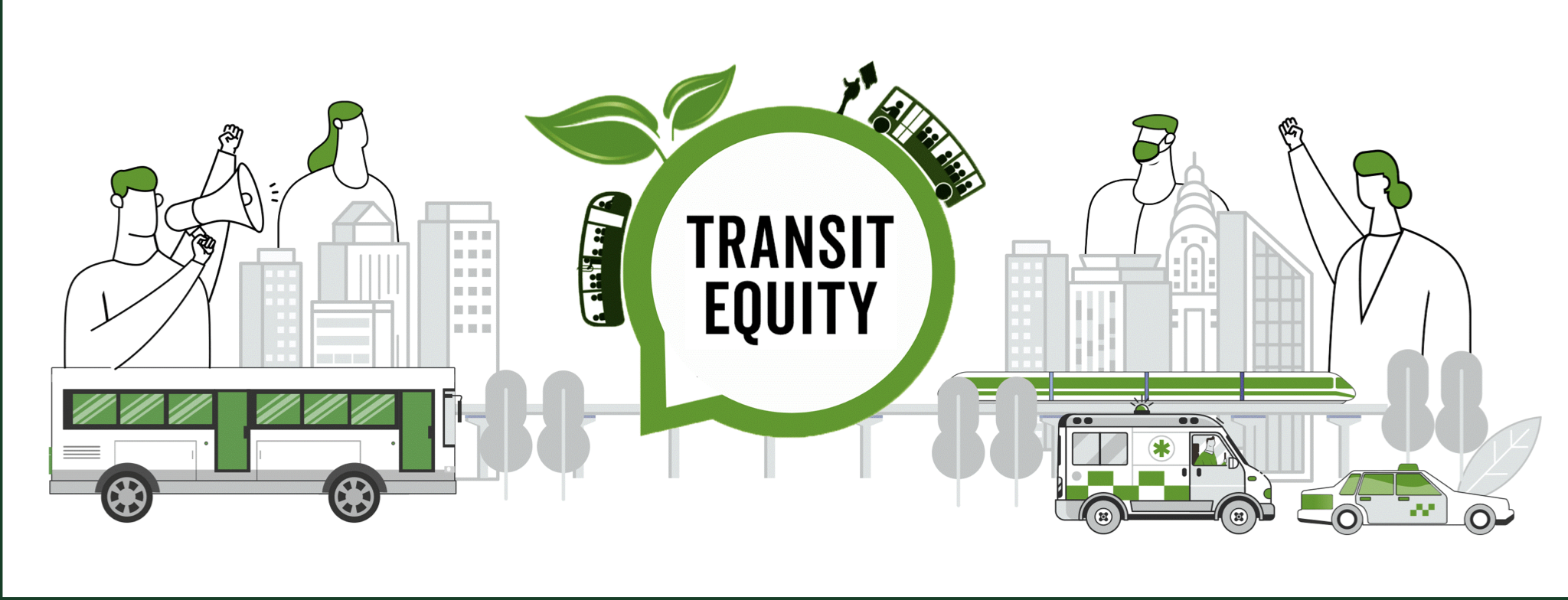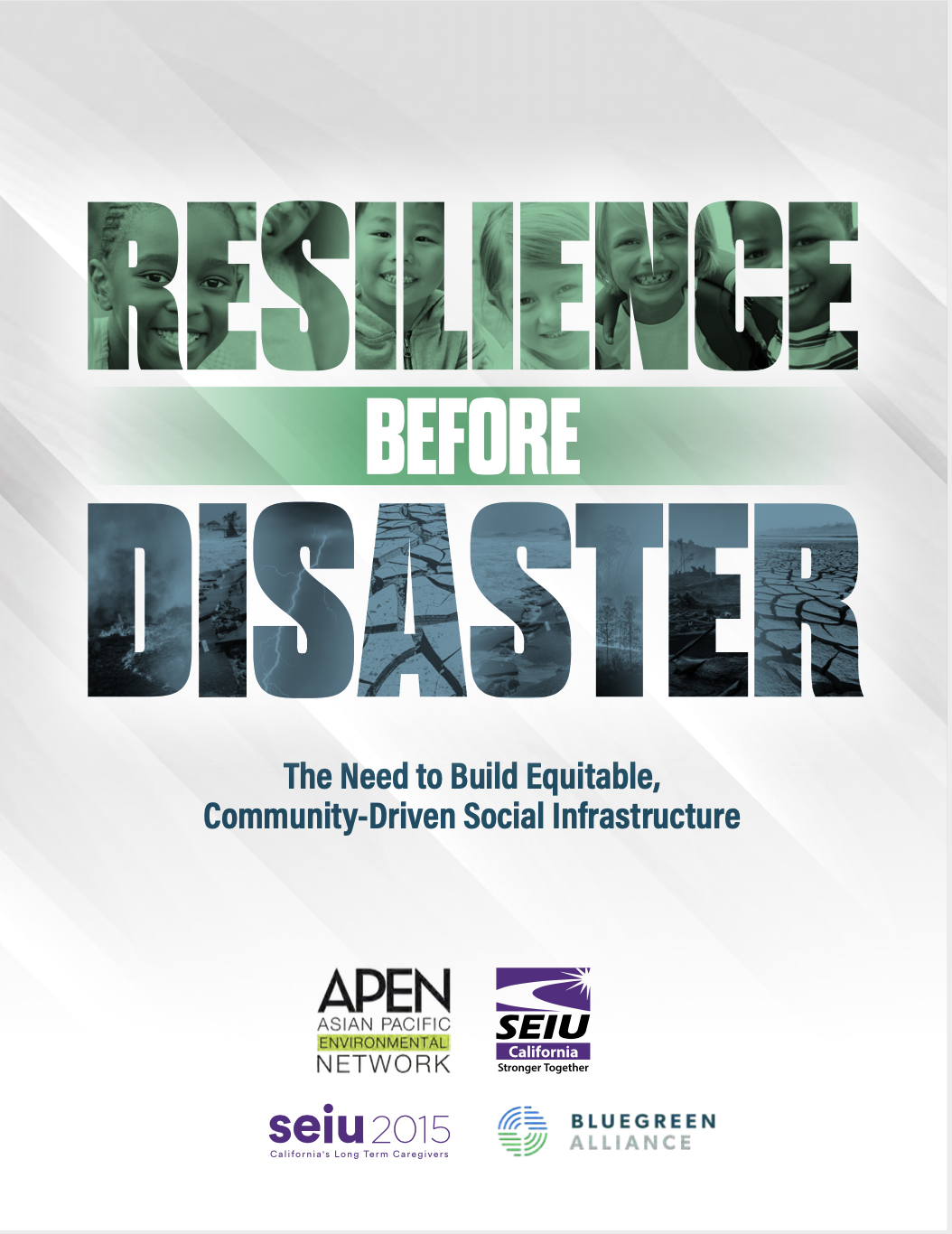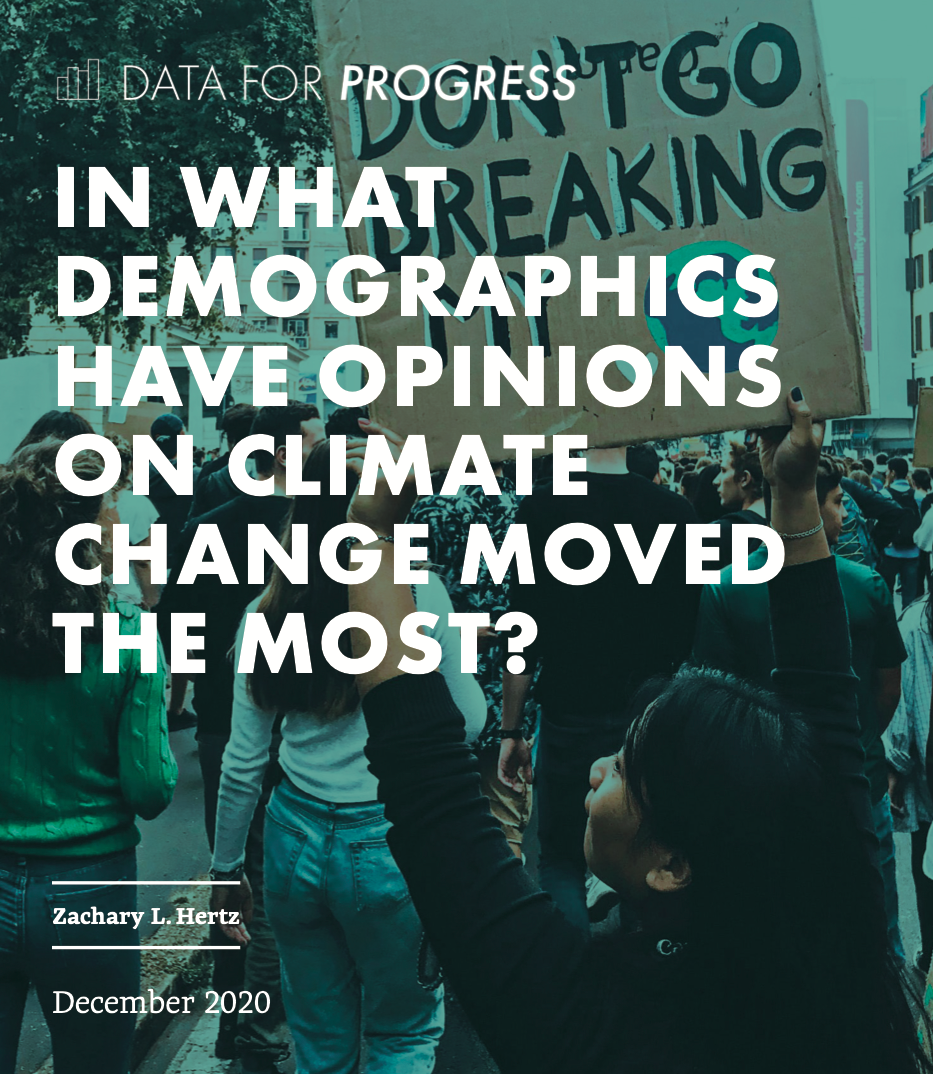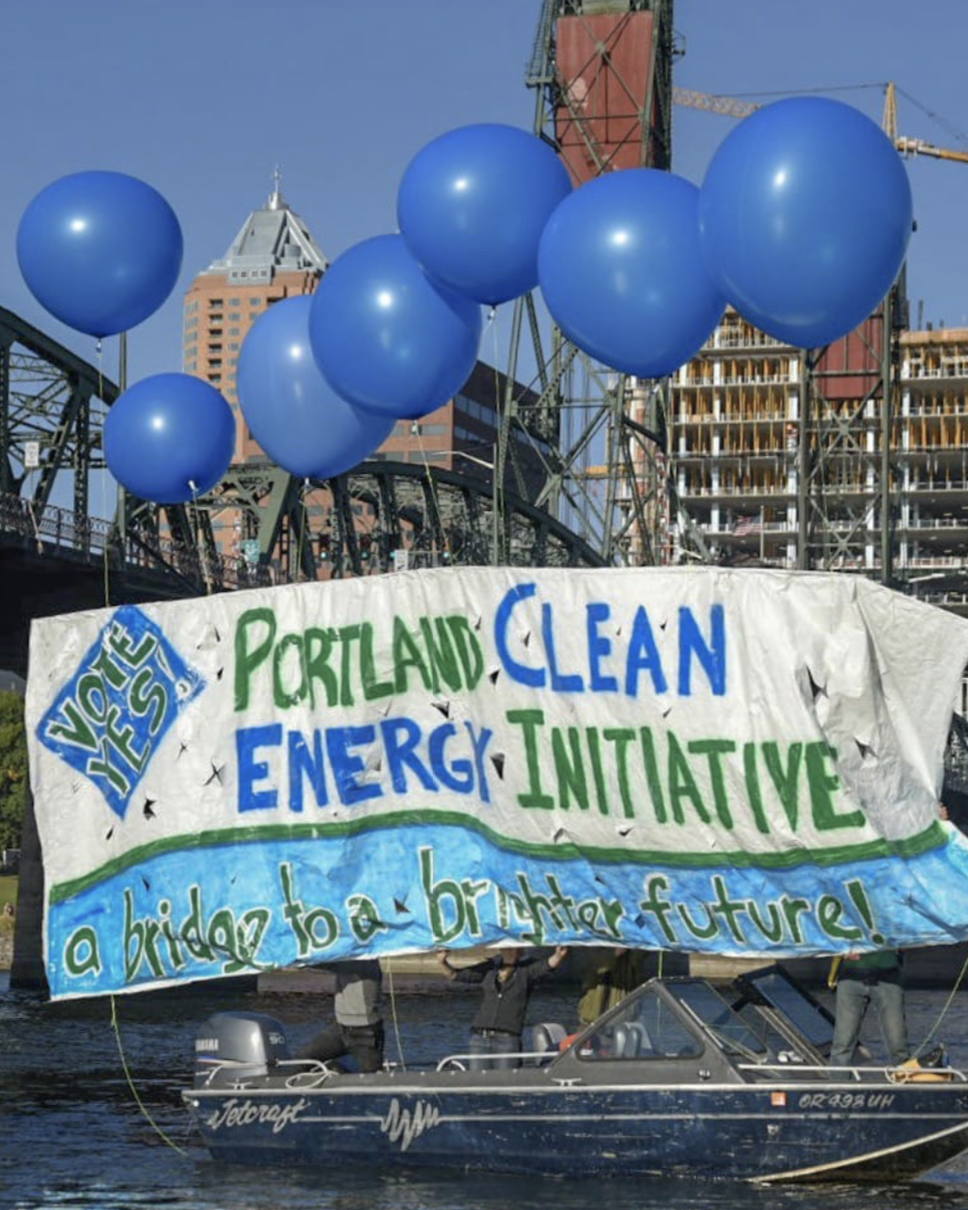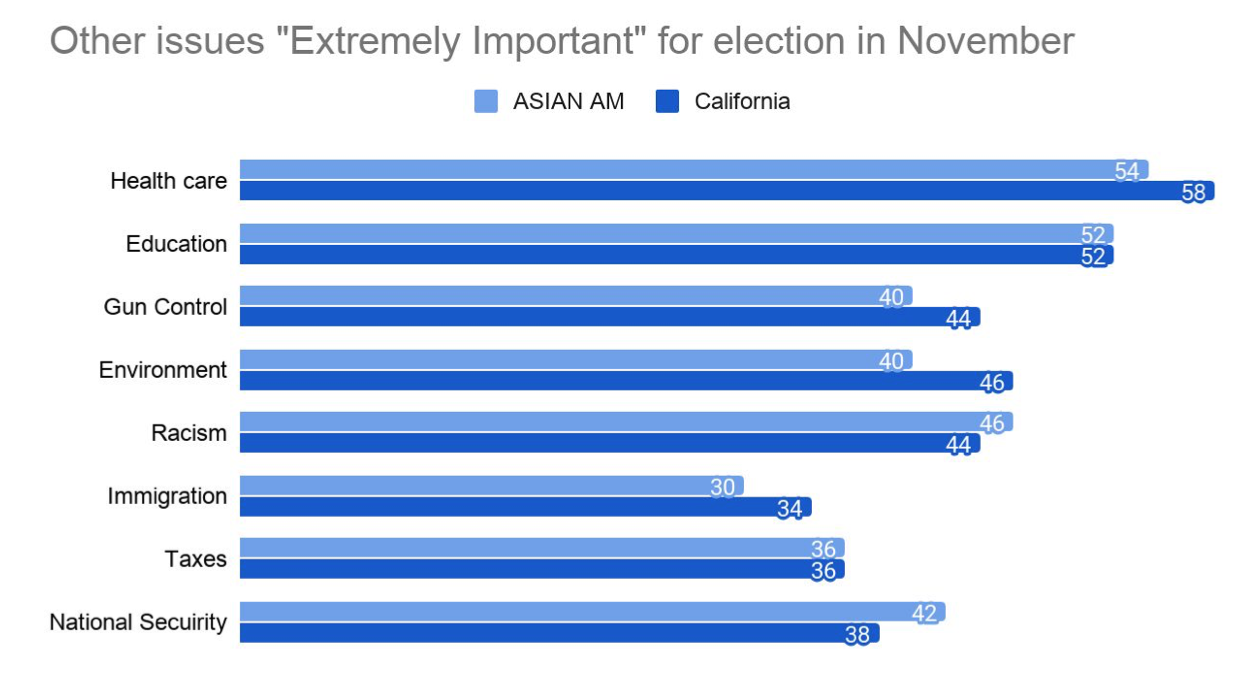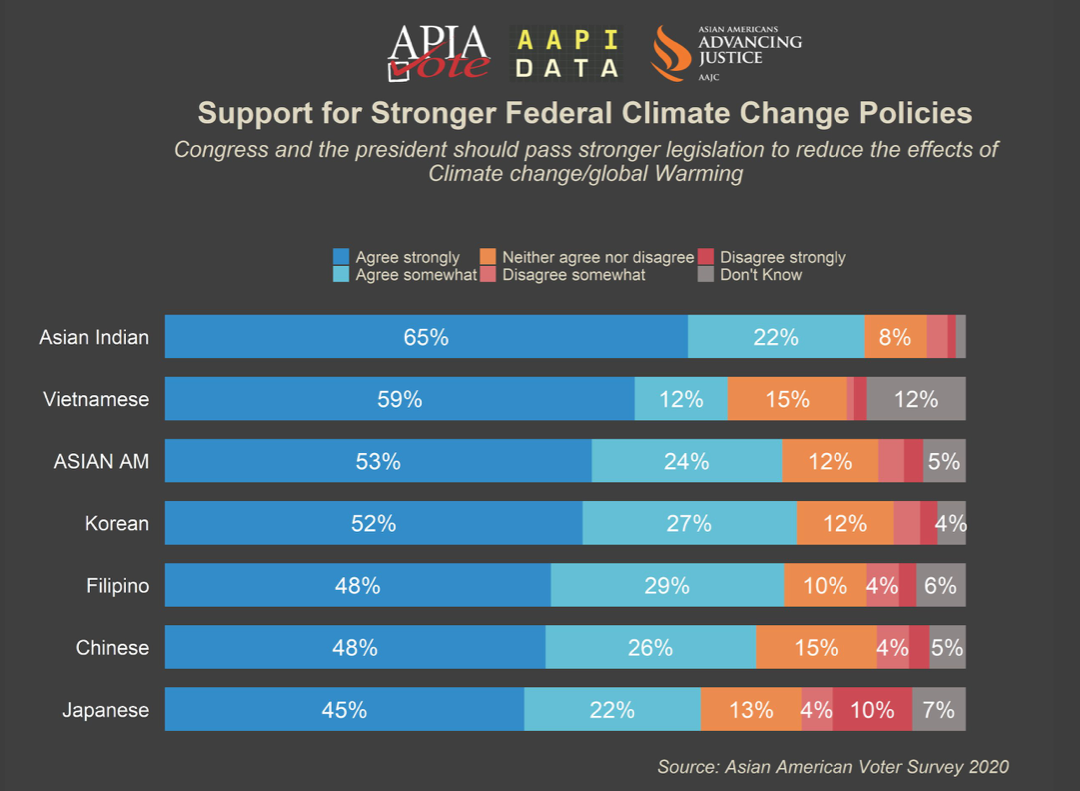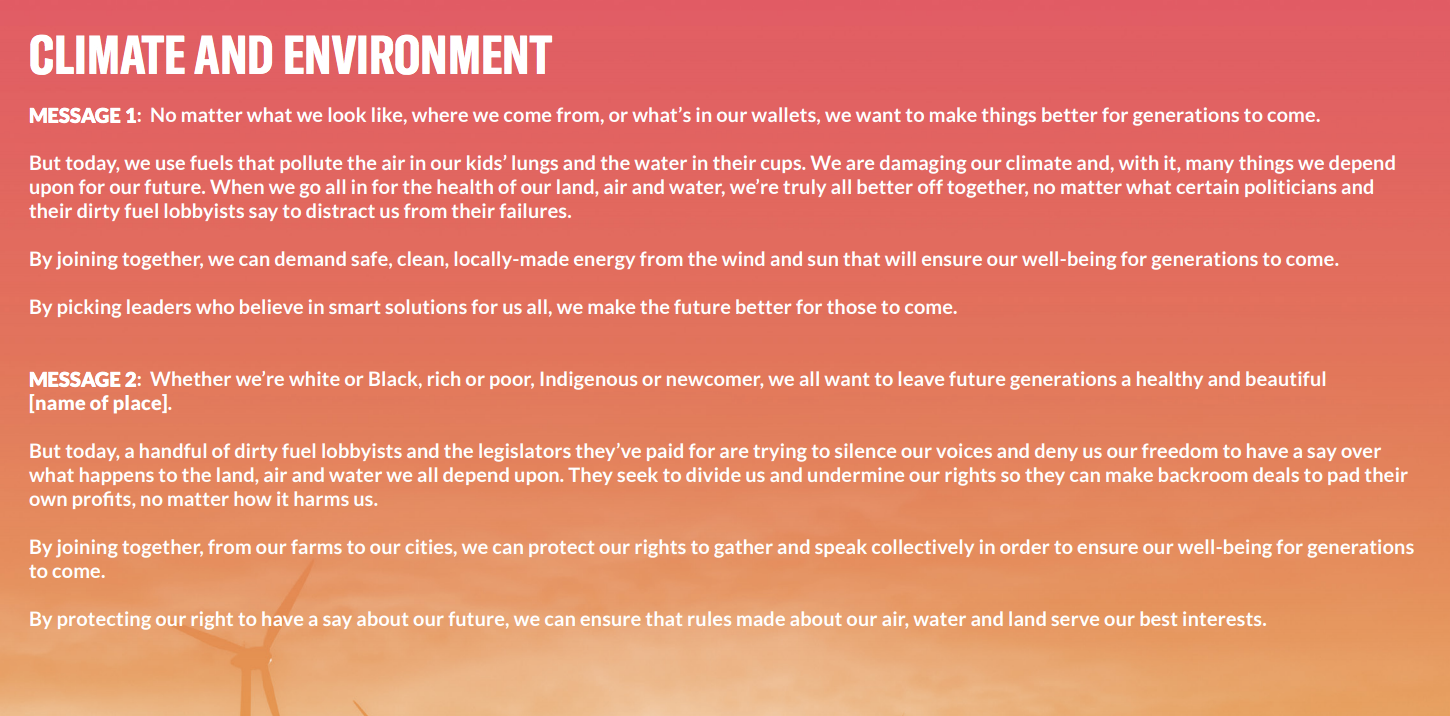Resources
Search below for resources covering the intersection of climate engagement, social science and data analytics.
RESULTS
Resilience Before Disaster Interactive Webinar
This interactive webinar covered the process of how this collaboration between environmental justice and labor forces was facilitated, how they built a shared vision around resilience, a rundown of the report's key findings, and a guided activity for how to apply the report's insights to participants' local communities and organizing work.
Community Hearing on Transit Equity 2021: Findings and Recommendations
Increasing accessibility, affordability, and reliability of public transit is imperative for BIPOC, low-income people, those living in rural areas, seniors, youth, and people with disabilities. COVID-19 exacerbated transportation inaccessibility because of limited routes and slashed service times. It also posed significant threats to transit workers who were not given adequate protection. Transit agencies must have safeguards in place to combat the negative effects of future pandemics as well as climate change. Such policies include better sick and family leave policies for transit drivers and electrification of the transportation sector to meet climate goals.
Resilience Before Disaster: The Need to Build Equitable, Community-Driven Social Infrastructure
California and the US are increasingly beset by climate-fueled disasters like wildfires, extreme heat, and power blackouts. These events put additional stress on frayed hard and social infrastructure systems, and disproportionately impact working-class communities of color. To adapt to these changes, society must update our notion of disaster response to increase resilience in these systems before disasters strike. This report offers two models for this response: 1) building and normalizing resilience hubs where community members gather and organize both in good times and bad, and 2) increasing in-home resilience by recognizing homecare workers as effective agents for assisting vulnerable populations and bridging authorities and the frontlines. The report goes on to recommend specific ways to set up resilience hubs, train care workers, and develop forward-thinking emergency response plans to avert human disasters after natural disasters.
Fueling the Fire: Why Any Fossil Fuel Industry Bailout Will be Disastrous for Communities of Color
This report looks at the intersection of pollution from refining and burning fossil fuels, repiratory diseases caused or exacerbated by this pollution, the impacts of the COVID-19 pandemic, and race and racial inequality in the United States. It makes the case that the CARES Act constitutes a bailout of the dirty energy sector that spent more to prop-up the fossil fuel industry than it did on health care supplies and investments, even as this industry contributes to the adverse health outcomes from the COVID-19 pandemic in communities of color. The report's key findings also link large financial sector players like big banks, asset management companies, private equity and insurance companies to the chain of carbon and chemical emissions that have disproprotionately negative impacts on communities of color and low-income communities.
In what demographics have opinions on climate change moved the most?
This report examines shifts in climate opinion across demographic groups, based on responses to surveys in 2016, 2017, and 2019. Key findings include:
- The electorate increasingly and indiscriminately sees climate change as an important issue, with consensus growing consistently across demographic groups.
- Black and Asian American respondents both overwhelmingly viewed climate change as important at significantly higher levels than in 2016.
- One of the most prominent shifts in opinion on climate change occurred among Independent voters, with a margin widening from 11 to 25 percentage points.
- Generally, opinions on climate change were similar and increased at a similar pace across demographic groups separated by education level.
Portland Clean Energy Fund Executive Summary: A Breakthrough for Climate and Justice
In November 2018, residents of Portland, Oregon, made history by passing The Portland Clean Energy Fund (PCEF), a breakthrough initiative that will raise an estimated $44-$61 million annually to support local clean energy and economic justice initiatives. The fund passed with 65 percent of the vote and support from a long list of local businesses and community organizations, including faith leaders, labor unions, and more. This Executive Summary captures toplines on what the campaign learned about what it takes to win.
2020 Asian American Voter Survey: California
The top issues for Asian Americans in California are health care, education and the environment. 46% of Asian-Americans in California considered "Environment" an "Extremely important" voting issue for them in the 2020 election.
2020 Asian American Voter Survey
This survey of ~1600 registered Asian American voters found high support for strong climate legislation, across ethnic sub-groups including Asian Indian (87% agree - 65% "strongly" and 22% "somewhat"); Vietnamese (71% agree - 59% "strongly" and 12% "somewhat"); and Korean (79% agree - 52% "strongly" and 27% "somewhat").
We Make The Future Messaging Guide
The We Make the Future Messaging Guide is for campaigners, researchers, and all people who want to persuade others to take action to confront the challenges of a changing climate. The guide is based on rigorous research into perception and persuasion, and provide specific recommendations to engage base constituencies and persuade the middle (or people who haven't spent a lot of time thinking about specific solutions). The core of this work is the Race Class Narrative, an approach that weaves together economic empowerment, racial justice, climate justice, and gender equity, using language proven to work to mobilize and persuade people to take action.
This is a how-to guide. It provides guidance on:
- What to say and, crucially, what not to say
- How to weave together the rights words and the right narrative
- How to link related issues such as racial justice and climate justice within all your communications and calls-to-action
- Specific ways to use these messages on email, social media, and via text message
And The People Shall Lead: Centralizing Frontline Community Leadership in the Movement Towards a Sustainable Planet
Summarizes lessons learned and challenges to collaboration between traditional large environmental organizations and frontline or people of color led organizations. Draws on the conversation at the “Engaging Non-Traditional Groups in Coal Plant Retirement” session at the National Coal Plant Retirement Conference in Denver and co-facilitated by the Little Village Environmental Organization, American Lung Association, Sierra Club, and the National Association for the Advancement of Colored People (NAACP).
Pagination
- Previous page
- Page 2
- Next page
